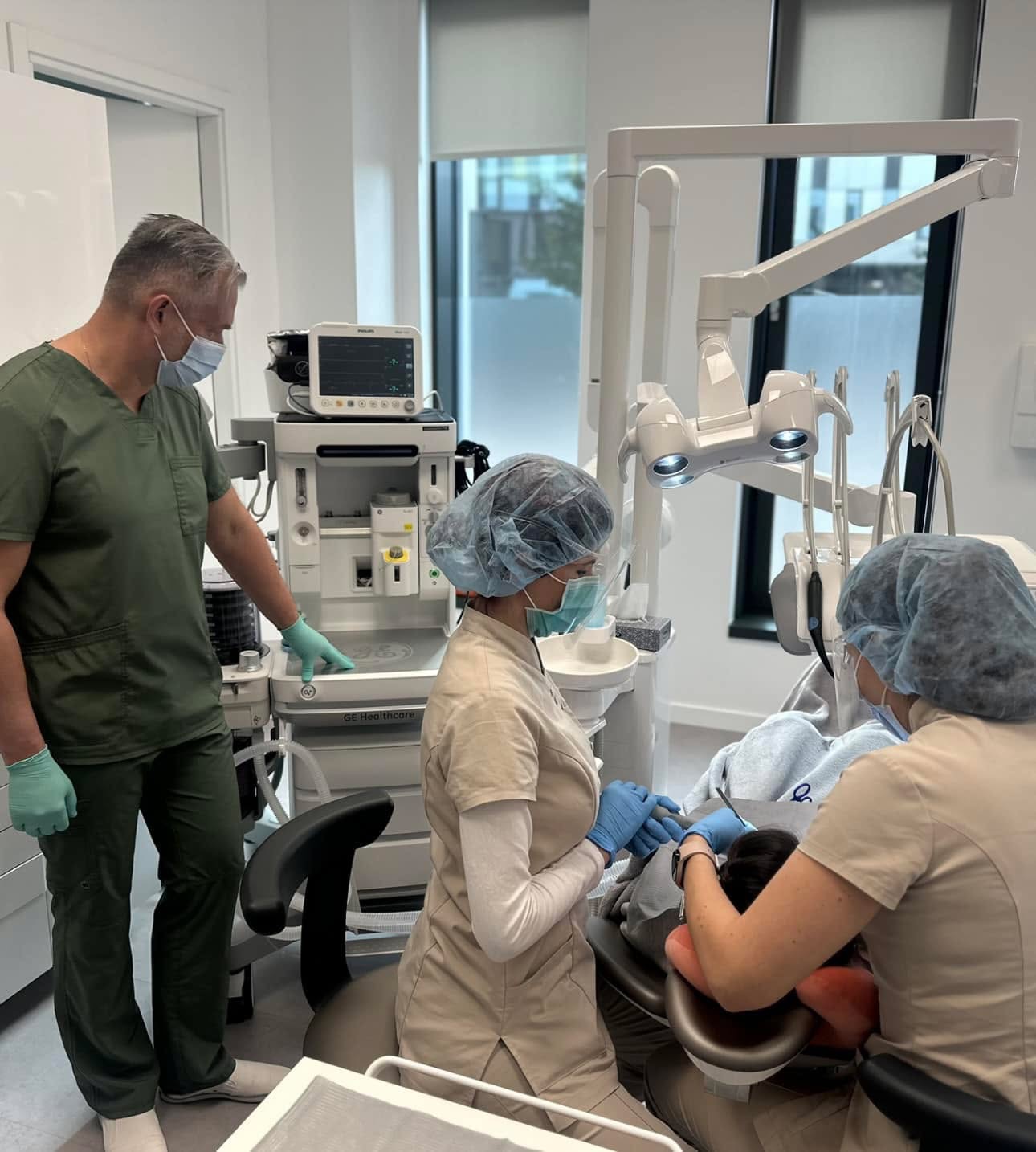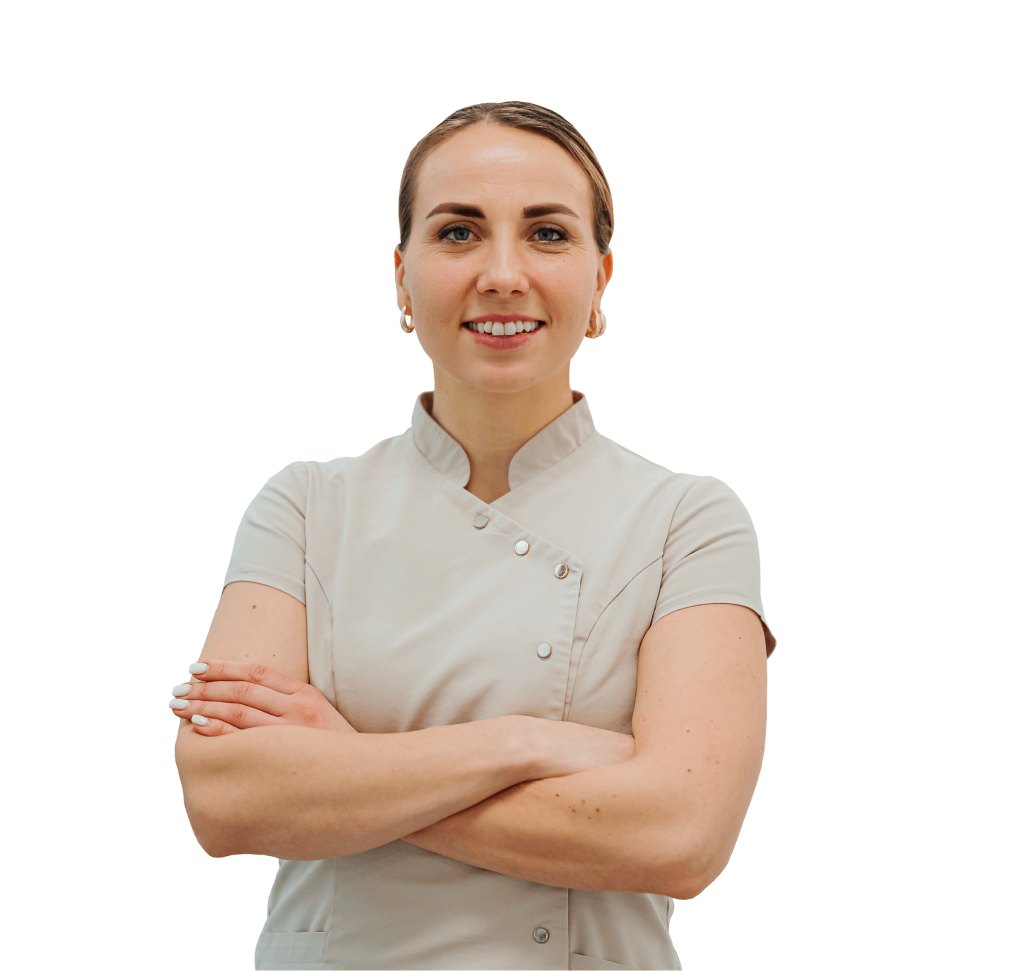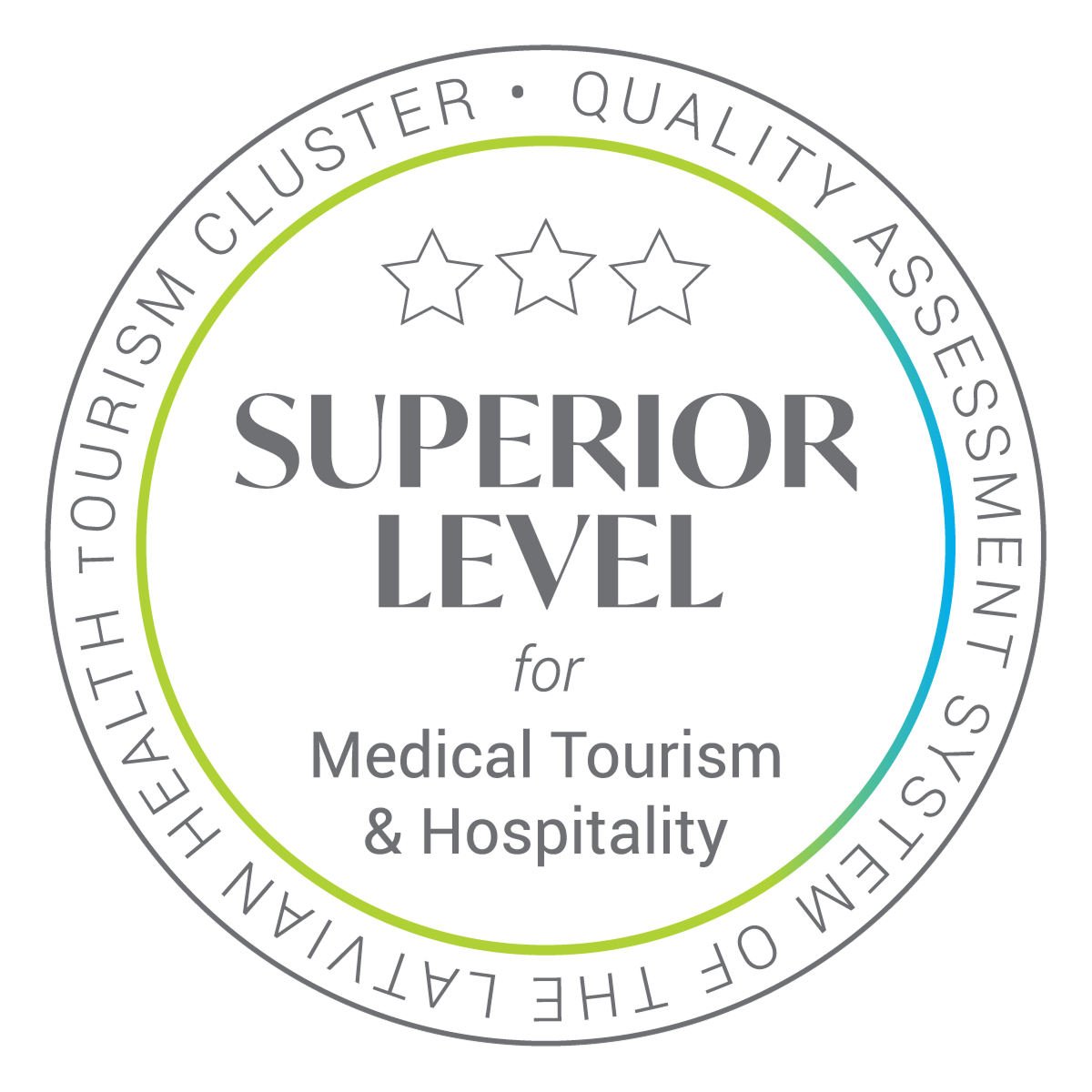General anesthesia
Anesthesia in dentistry plays a crucial role in ensuring patient’s comfort during procedures. It helps minimize pain sensations and anxiety, which is especially important for patients with high anxiety. Various types of anesthesia are used in dentistry: local anesthesia, which blocks sensation in a specific area, and general anesthesia, which puts the patient into a state of sleep. Modern anesthesia methods are safe and allow dentists to perform complex procedures with maximum comfort for the patient. The appropriate choice of anesthesia and its dosage are determined by the dentist on an individual basis, depending on the type of procedure and the patient’s condition.

What is Anesthesia for dental procedures?
Various pain relief methods are used in dentistry to ensure maximum comfort and eliminate pain during procedures. Our specialists select the most appropriate type of anesthesia based on the complexity of the treatment and the individual needs of each patient. All procedures are carried out under the supervision of experienced doctors, ensuring safety and overall well-being.
When it is recommended?
Many of us are afraid of going to the dentist, but, thanks to the development of modern anaesthetic methods, dental treatment is very rarely uncomfortable, but in order to eliminate discomfort as much as possible during complex treatment or surgical intervention, Sky Dream Clinic specialists recommend treatment under general anaesthesia . We use medications with a high safety profile, and the most modern systems for monitoring the patient’s condition are used during treatment. During treatment in sleep, the patient does not feel pain, does not see or feel the doctor’s manipulations. The patient’s condition during sleep treatment is monitored by an experienced team of anaesthesiologists and resuscitators. When is a general anaesthesia treatment recommended?
- Dentophobia/dentophobia (panic fear of dentistry in both children and adults);
- Very low pain threshold;
- Strongly marked gag reflex;
- Individual intolerance to preparations included in local anaesthesia, allergic reactions;
- Mental abnormalities that exclude the possibility of contact between the doctor and the patient, when the patient is unable to adequately respond to the actions of the doctor;
- High volume of work or very long treatment time, e.g. placement of several implants.
Stages of Anesthesia
Preparation for surgery includes
Prior to the treatment under general anaesthesia, the patient will receive preparation instructions: The patient should have an ECG (without orthostatic test) before general anaesthesia, valid for 30 days; Incomplete blood count, coagulogram (APTT, PI, INR PT); Preliminary consultation with an anaesthesiologist, with the assessment of physical status; Conclusion of the family doctor. The doctor gives an opinion that you are ready for treatment under general anaesthesia; After all examinations, another consultation with the anaesthesiologist.
Recommendations on the day of surgery
Do not eat for 8 hours before surgery, you can drink water, tea without sugar 2 hours before surgery, coffee with milk 4 hours before surgery; No smoking on the day of surgery; Exclude alcohol for at least 48 hours; If the anaesthetist prescribes medication, take it; Dress uniform should be loose and easily unbuttoned; There must be a chaperone to escort you back to your place of residence at the end of treatment.
Immersion in anaesthesia
An anaesthetic is injected into the body, the patient becomes drowsy, pain sensitivity disappears and gradually falls into sleep. There is a stage of analgesia, when all reflexes are still preserved, and the pulse, blood pressure and breathing are almost unchanged. After a few minutes, if necessary, the patient falls into a state of deep sleep, during which surgical intervention can be performed.
Treatment
If treatment is required for severe hard tissue and gum lesions, extraction of the teeth with several crooked roots and other complex cases, deep sleep immersion is necessary. Throughout the treatment, an anesthesiologist-animatologist is next to the patient, who constantly monitors the vital signs: blood pressure, respiratory rate, oxygen saturation of the tissues, and body temperature.
Post anaesthesia monitoring
With coming out of anaesthesia it gradually begins to recover reflexes, it takes about 5-10 minutes. The anaesthesiologist monitors the patient’s condition for another half an hour. The patient goes home accompanied by someone else.
F.A.Q.
Local anesthesia is a method applied to block pain sensations in a specific area of the oral cavity, allowing dental procedures to be performed without discomfort.
General anesthesia is used for complex or lengthy procedures, such as removing multiple teeth or for patients with high anxiety, to ensure full comfort during treatment.
Yes, anesthesia is considered safe when administered by a qualified specialist and if the patient has no contraindications. The dentist always conducts a preliminary assessment of the patient’s health status.
The effect of local anesthesia typically lasts from 1 to 3 hours, while general anesthesia can last several hours and depends on the specific medication and method used.
After anesthesia wears off, patients may experience some mild discomfort or tenderness, especially after more serious treatments, but this is usually easily managed with pain relief medications.
Sign up for a consultation
Planning a visit to the dentist, but don’t know where to start? Book a consultation before treatment and get answers to all your questions. We will help you understand the necessary procedures and take the first step to a healthy smile!

